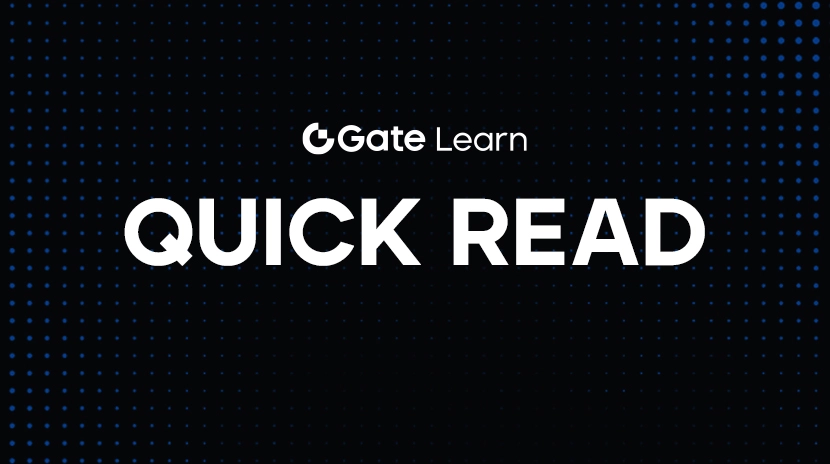Blockchain DeFi: Revolutionizing Finance and How Gate.io Supports the Movement
Introduction: What Is Blockchain DeFi?
Blockchain DeFi, short for Decentralized Finance, refers to a fast-growing sector in the cryptocurrency world that aims to recreate traditional financial services — like lending, borrowing, trading, and investing — using blockchain technology.
Unlike traditional banks or brokers, DeFi platforms run on smart contracts and operate without centralized authorities, offering users greater control, transparency, and global accessibility.
At its core, blockchain DeFi seeks to give financial power back to individuals, removing the need for intermediaries and making financial services available to anyone with an internet connection.
How Blockchain DeFi Works
Blockchain DeFi applications (called dApps) are typically built on major blockchains like Ethereum, Binance Smart Chain (BSC), or Solana. These platforms use smart contracts to automate transactions securely and transparently.
Common DeFi services include:
Decentralized Exchanges (DEXs): Platforms like Uniswap or SushiSwap allow users to swap tokens without intermediaries.
Lending and Borrowing: Protocols like Aave and Compound let users earn interest on deposits or borrow assets against crypto collateral.
Yield Farming and Staking: Users can lock up crypto to earn passive income.
Stablecoins and Synthetic Assets: DeFi enables new types of digital assets that track real-world items like the U.S. dollar or stocks.
All these services happen automatically, reducing costs and improving access for global users.
Why Blockchain DeFi Matters
Financial Freedom: Anyone can participate without needing permission from a bank or government.
Lower Costs: DeFi often offers lower fees than traditional banking.
Transparency: All transactions are recorded on public blockchains.
Innovation: DeFi is pushing new financial products like flash loans, decentralized insurance, and tokenized real-world assets.
However, DeFi also comes with risks, including smart contract bugs, high volatility, and regulatory uncertainty.
How Gate.io Supports Blockchain DeFi
Gate.io, one of the world’s leading cryptocurrency exchanges, plays a major role in making DeFi accessible and secure for global users.

Source: https://www.gate.io/web3/dapps?categorys=DeFi&chains=
Here’s how Gate.io supports the DeFi revolution:
1. DeFi Access Through GateChain
Gate.io operates GateChain, a public blockchain designed for asset safety and DeFi applications. GateChain supports fast transactions, low fees, and smart contract functionality, allowing DeFi projects to build on a secure and scalable platform.
2. Wide DeFi Token Listings
Gate.io lists a wide range of DeFi-related tokens like UNI (Uniswap), AAVE (Aave), CRV (Curve), SUSHI (SushiSwap), and many more, giving users easy access to the DeFi ecosystem directly from the exchange.
3. Gate Earn: DeFi Yield Opportunities
Through its Gate Earn feature, users can stake DeFi tokens, provide liquidity, or participate in structured DeFi products to earn passive income, often without the technical barriers that direct DeFi platforms can impose.
4. DeFi Startup Projects
Gate.io regularly hosts Startup launches, where new DeFi projects raise funds and engage early users through token sales. This helps users discover and support promising DeFi ventures before they become mainstream.
Trade defi token on Gate.io
https://www.gate.io/crypto/buy?crypto=USDT&fiat=twd
Conclusion: The Future of Blockchain DeFi and Gate.io’s Role
Blockchain DeFi is redefining how people interact with money, offering greater access, efficiency, and innovation in finance.
Platforms like Gate.io bridge the gap between centralized exchanges and the decentralized world, making it easier and safer for users to tap into the opportunities DeFi offers.
As DeFi continues to grow and mature, Gate.io is well-positioned to remain a key platform for anyone looking to participate in the decentralized future of finance.
Whether you’re new to DeFi or an experienced investor, understanding this space — and choosing the right platforms — is essential for navigating the next generation of financial services.
Risk Reminder
Cryptocurrency and DeFi investments are highly volatile and involve significant risks. Always conduct your own research and consult professional advisors before making financial decisions. This article is for informational purposes only and does not constitute financial advice.





